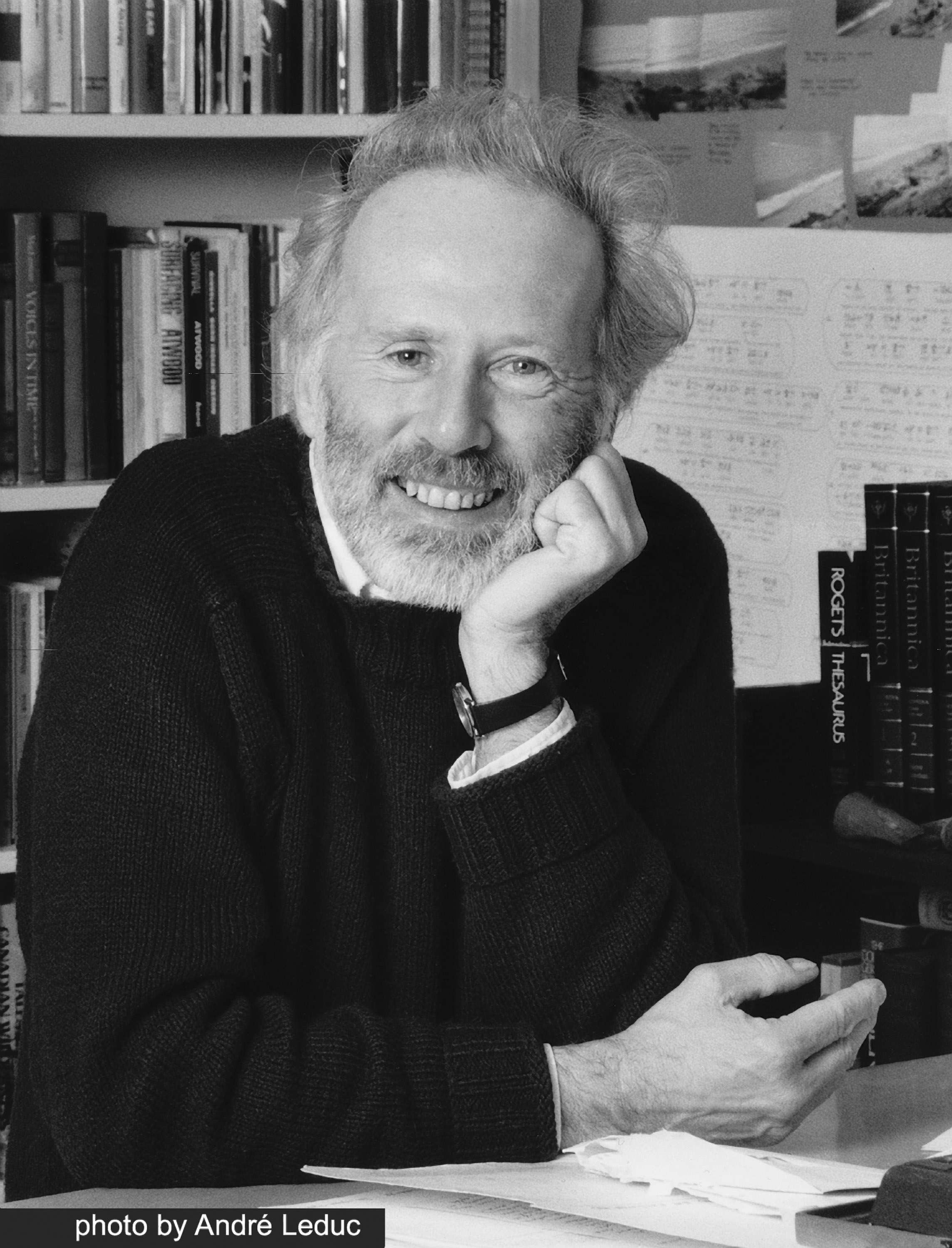|
Back
New Creations Festival Closes With a World Premiere Toronto
Roy Thomson Hall
03/10/2011 -
John Adams: Tromba lontana
Jennifer Higdon: On a Wire for eighth blackbird and Orchestra
R. Murray Schafer: Symphony No. 1 in C Minor
eighth blackbird (chamber ensemble)
Toronto Symphony Orchestra, Peter Oundjian (Conductor)

R. Murray Schafer
Johannes Brahms famously waited until he was at the relatively advanced age of 44 before completing his first symphony. The prolific R. Murray Schafer has waited until the age of 77. And Schafer’s work, like Brahams’, is in C Minor, the key also for other epic works like Beethoven’s 5th symphony and Mahler’s 2nd. Unlike those, however, Schafer’s symphony is more of a ruminative (even playful) exploration rather than a quest.
Schafer is also noted for his “situational” works, those that are composed expressly for performance in a non-traditional location for through-composed “formal” music. One example is The Princess of the Stars meant to be played on the shore of a remote lake at sunrise, requiring both performers and audience to assemble in the night. (It is the prologue to his 12-part opus Patria, composed over a 40-year span.) Canada has an uncountable number of remote lakes and this piece has actually had several performances. His music theatre work Ra (Part Six of Patria) was performed in Toronto in 1984 in various parts of a science museum and lasted from midnight to dawn. Of course a concert hall is just as much a “situation” as a lake or whatever, and he has composed many works (including concertos) for concert hall performance.
The 35-minute symphony is in three movements, and the first (“Very Vigorously”) opens with aleatory lines and, while certain sections of the orchestra carry the melody, other players mime playing the notes they would be playing if accompanying. One of Schafer’s trademarks is spatial separation of performers and this piece places some brass players in the balcony. Just as in traditional symphonies, the movement’s tempo indication does not rule out variations in tempo and mood within the movement. "Very Vigorously" has a slow thoughtful section, followed by a return of vigor complete with fanfare, but then a sombre ending.
The second movement is designated “Mysteriously”. There are glissandi from the cellos with interruptions from the timpani. The strings play in higher registers, there are contrasting sonorities and an ethereal, floating impression.
The final movement, “Fast and Furious”, certainly starts out that way but becomes downright mellow, with eruptions of something resembling fury. At the finale the piece simply melts away.
This was the TSO’s own commission (i.e., not shared with any other orchestra). Such is Schafer’s standing, however, that I am sure it will get further performances, at least in Canada. And surely a Symphony No. 1 calls for a No.2, etc....
The Schafer work was the concluding piece on the program. The concert began with a brief work by this year’s featured composer, John Adams. Tromba lontana is a direct contrast to the noisy, extroverted Short Ride in a Fast Machine that opened the festival. The orchestra plays a glittery ostinato while two trumpets call across to one another in soaring but subdued musical lines. To compare it to earlier American pieces, it is more closely related to Charles Ives’s The Unanswered Question than to Aaron Copland’s Fanfare for the Common Man.
The second work was Jennifer Higdon’s On a Wire for eighth blackbird and orchestra. Does the title seem perplexing? Eighth blackbird is a chamber group consisting of six musicians who, for this piece, play a total of 10 instruments. Higdon has composed two chamber works for the group; this experience helped her gauge what could be done with what can be called a concerto grosso for them. “Imagine six blackbirds sitting on a wire” she states in her program notes. The piece opens with tones from the “bowed piano”, which means that various wires within the piano have strings taken from violin bows drawn across them. The long, low-toned wires receive this treatment to begin the work. Wires are also plucked while the pianist plays. The five other players then go to their usual instruments - and contrasting solos and various combinations ensue.
The 25-minute work is in one movement, but it seems more like linked movements of individual character. There’s a rather pastoral section for marimba, a jaunty piece for the flute and one that demonstrates the warmth of the cello. Toward the end the piano strings receive more attention, being plucked and struck, accompanied by bubbly runs, and the piece gallops to a sudden conclusion.
I wouldn’t want to predict the future of this rather whimsical work. I have to note that it wasn’t as joyously received by the audience as Vincent Ho’s The Shaman at the opening concert of this year’s festival. Jennifer Higdon is certainly on the map, however, having won the Pulitzer Prize in 2010 for her violin concerto (which has been performed by the TSO.) On a Wire is assured a number of performances as it was co-commissioned by the TSO and no less than seven geographically dispersed US orchestras. Watch for it in a concert hall near you.
As with all the New Creations concerts, there was much activity in the lobby. Before the concert eighth blackbird performed; at intermission composers Higdon and Schafer were interviewed; and afterward, Quebec folk group Le Vent du Nord performed.
This concert was recorded by the Canadian Broadcasting Corporation for future broadcast, which is nice considering the CBC’s de-emphasis on classical music over the past few years. Concert programs used to inform us of dates and times of upcoming broadcast(s) of a performance but now we have to hope for the best.
There will of course be another New Creations Festival next year, featuring composer/conductor Peter Eötvös.
Michael Johnson
|